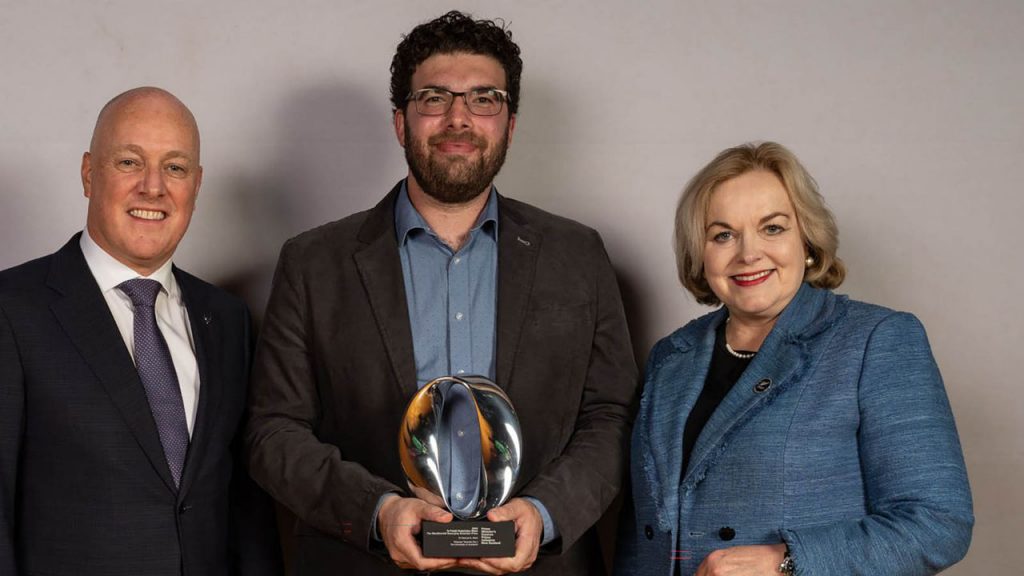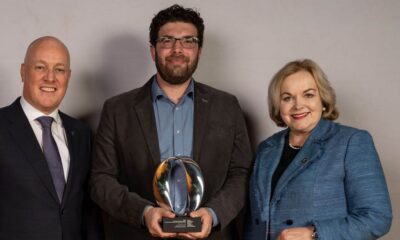Science
Top Scientist Criticizes New Zealand’s Research Funding Crisis

Cognitive scientist Samuel Mehr, the recipient of New Zealand’s prestigious science prize last year, has voiced strong concerns regarding the country’s research funding system. He warns that without significant changes, New Zealand will continue to experience a brain drain, losing some of its most talented minds to overseas opportunities.
Mehr describes the current funding system as “laughably pathetic,” highlighting a decade of stagnation that has tarnished New Zealand’s reputation as a hub for innovation. Recent restructures and budget cuts have only exacerbated this issue, which Mehr claims is “adding insult to injury” for the research community.
The cognitive scientist emphasizes that many top researchers are contemplating leaving New Zealand in search of better funding and support for their work. Over the past ten years, he notes, the country has lost its competitive edge in attracting and retaining innovative thinkers.
Impact of Budget Cuts on Research
In his assessment, Mehr points to a correlation between funding cuts and the decline in research quality and output. The lack of financial support has made it increasingly difficult for scientists to pursue ambitious projects, resulting in a less vibrant research environment. He argues that this trend threatens not only individual careers but also the broader scientific landscape in New Zealand.
According to Mehr, the current budgetary approach fails to recognize the essential role that robust funding plays in fostering innovation. He believes that investing in science and research is crucial for the country’s future economic growth and global standing.
This situation has led to a growing concern among researchers and academics within New Zealand. Many are calling for a reevaluation of the funding mechanisms that govern scientific research. The urgency of this matter is underscored by the potential long-term consequences if the trend continues unchecked.
Despite these challenges, Mehr remains hopeful that increased awareness and advocacy can lead to meaningful change. He encourages fellow researchers to voice their concerns and push for reforms that can revitalize New Zealand’s scientific community.
Ultimately, the future of cognitive science and other fields in New Zealand hangs in the balance. As Samuel Mehr aptly points out, without a concerted effort to enhance funding and support, the nation risks losing its brightest minds to foreign institutions that value and invest in scientific inquiry.
-

 Sports2 months ago
Sports2 months agoNetball New Zealand Stands Down Dame Noeline Taurua for Series
-

 Entertainment2 months ago
Entertainment2 months agoTributes Pour In for Lachlan Rofe, Reality Star, Dead at 47
-

 Entertainment3 weeks ago
Entertainment3 weeks agoNew ‘Maverick’ Chaser Joins Beat the Chasers Season Finale
-

 Sports2 months ago
Sports2 months agoSilver Ferns Legend Laura Langman Criticizes Team’s Attitude
-

 Politics3 weeks ago
Politics3 weeks agoNetball NZ Calls for Respect Amid Dame Taurua’s Standoff
-

 Entertainment2 months ago
Entertainment2 months agoKhloe Kardashian Embraces Innovative Stem Cell Therapy in Mexico
-

 Sports2 months ago
Sports2 months agoGaël Monfils Set to Defend ASB Classic Title in January 2026
-

 World3 months ago
World3 months agoPolice Arrest Multiple Individuals During Funeral for Zain Taikato-Fox
-

 Entertainment1 month ago
Entertainment1 month agoTyson Fury’s Daughter Venezuela Gets Engaged at Birthday Bash
-

 Sports1 month ago
Sports1 month agoHeather McMahan Steps Down as Ryder Cup Host After Controversy
-

 Entertainment1 month ago
Entertainment1 month agoTyson Fury’s Daughter Venezuela Gets Engaged at Birthday Bash
-

 World6 days ago
World6 days agoSevere Winds Hit New Zealand, Over 100 Flights Canceled



















